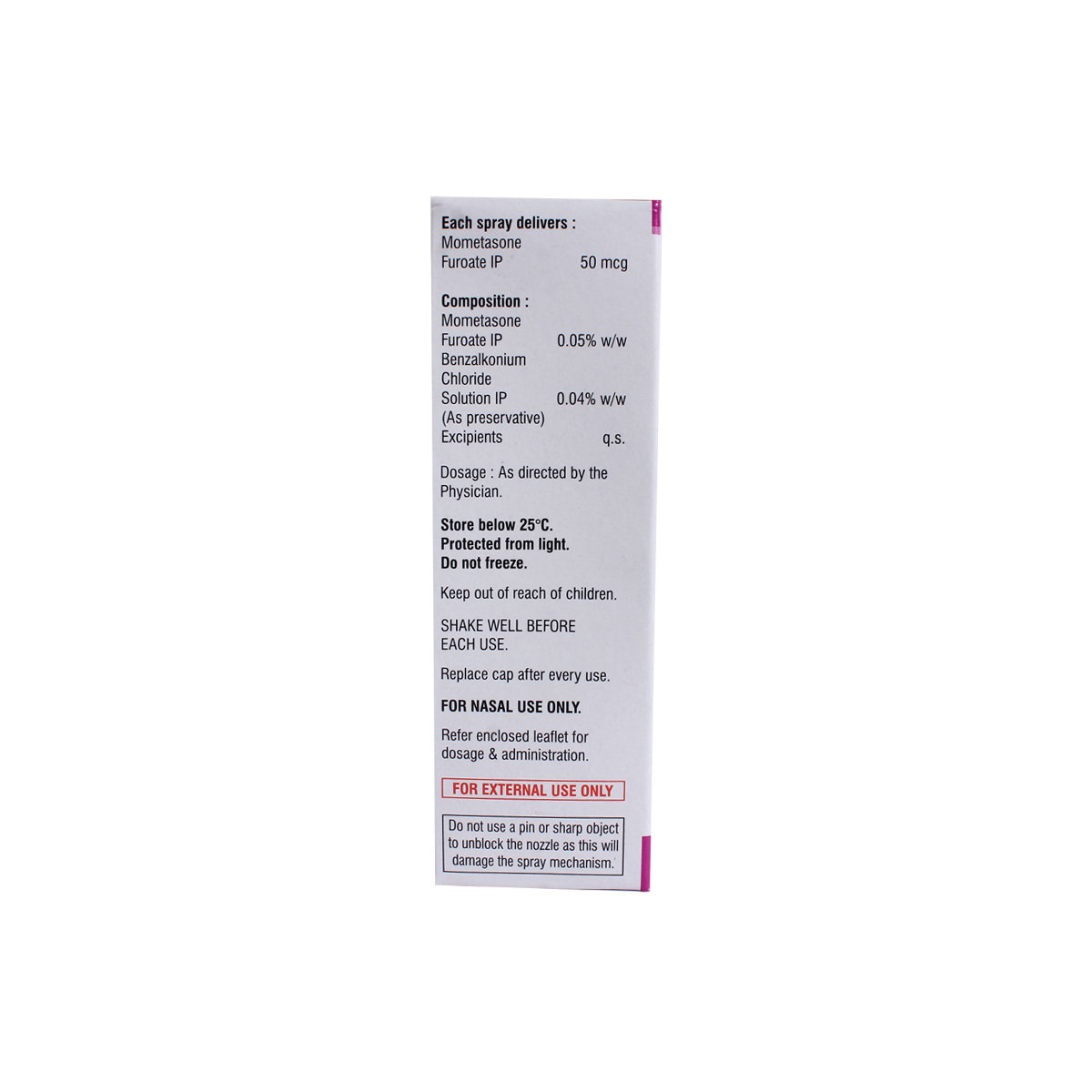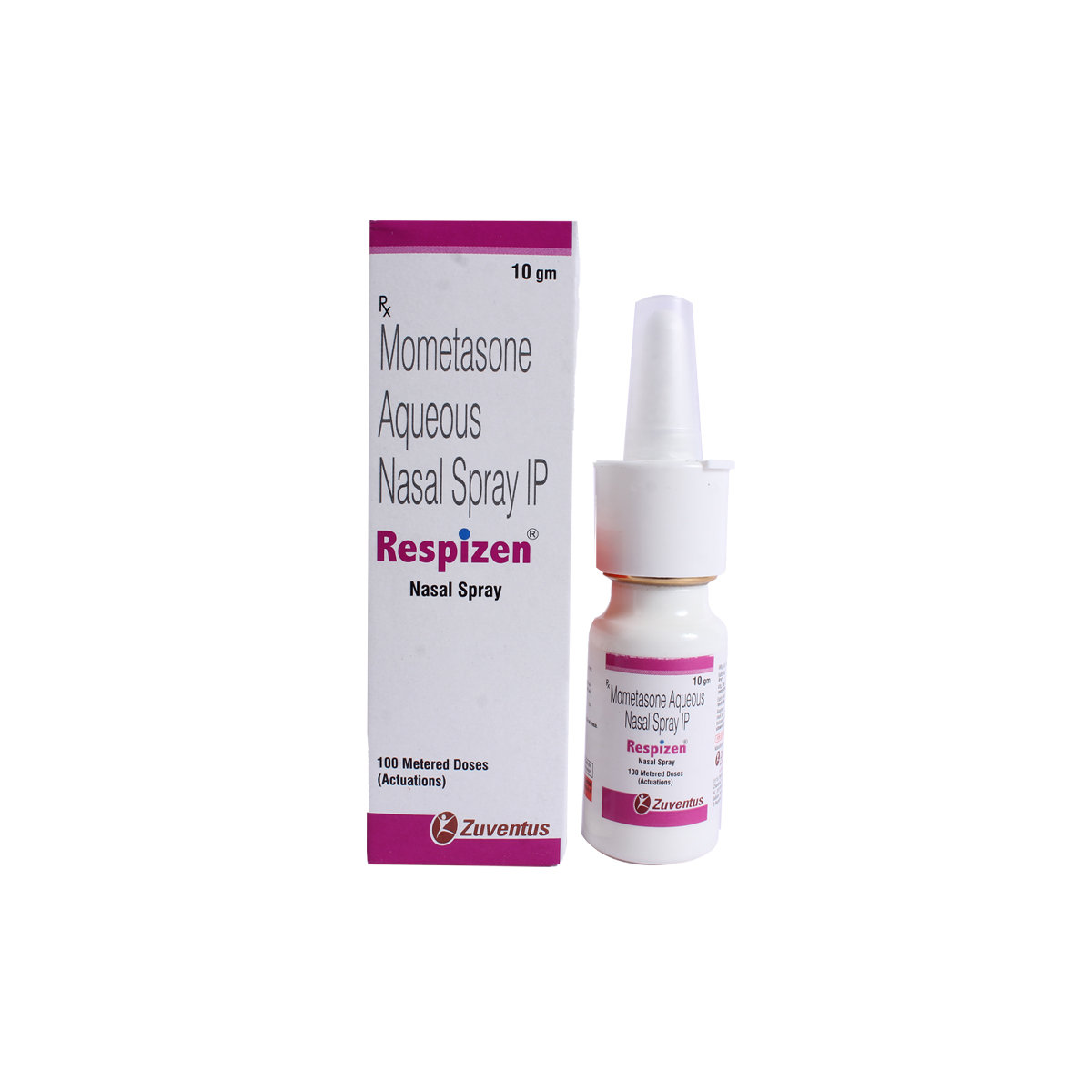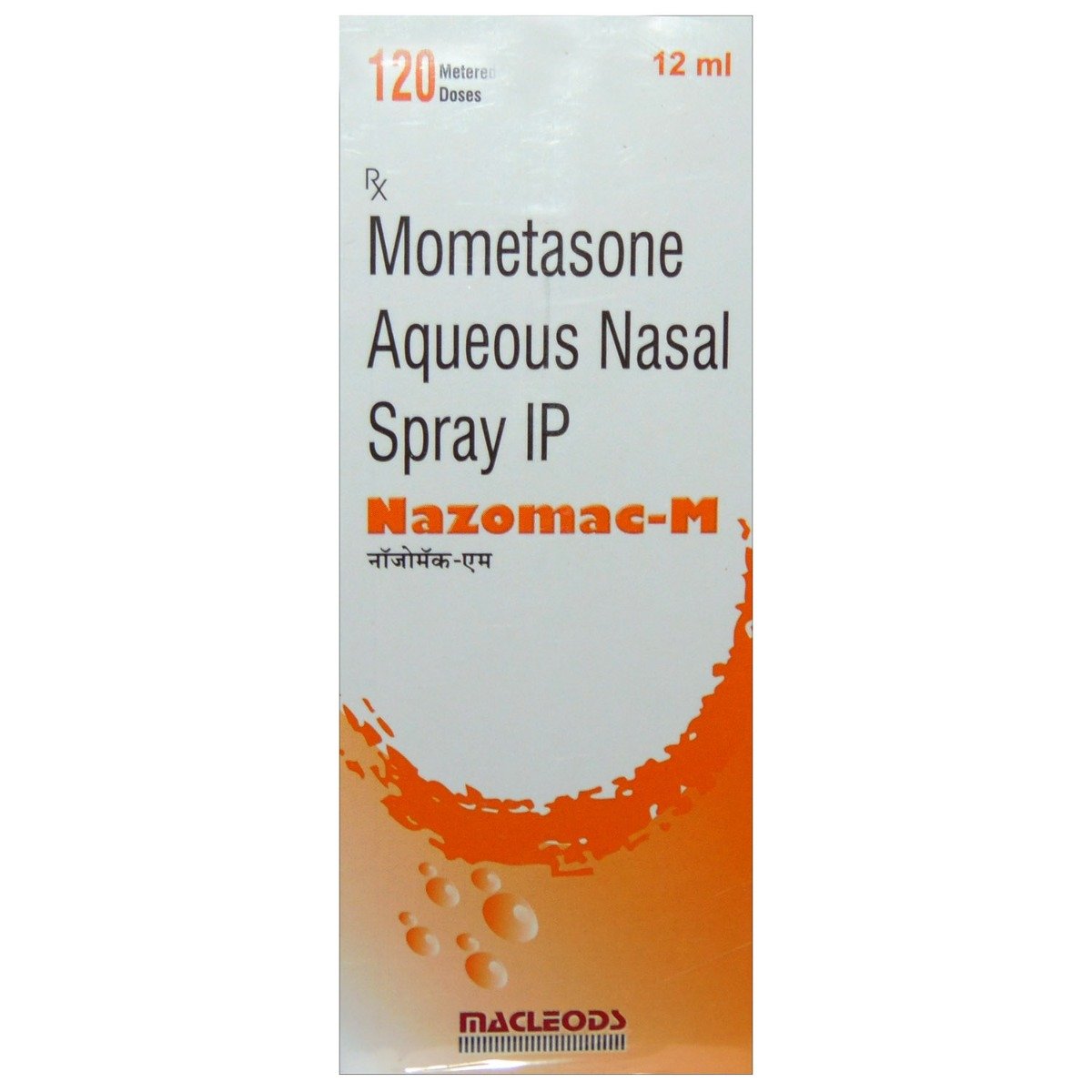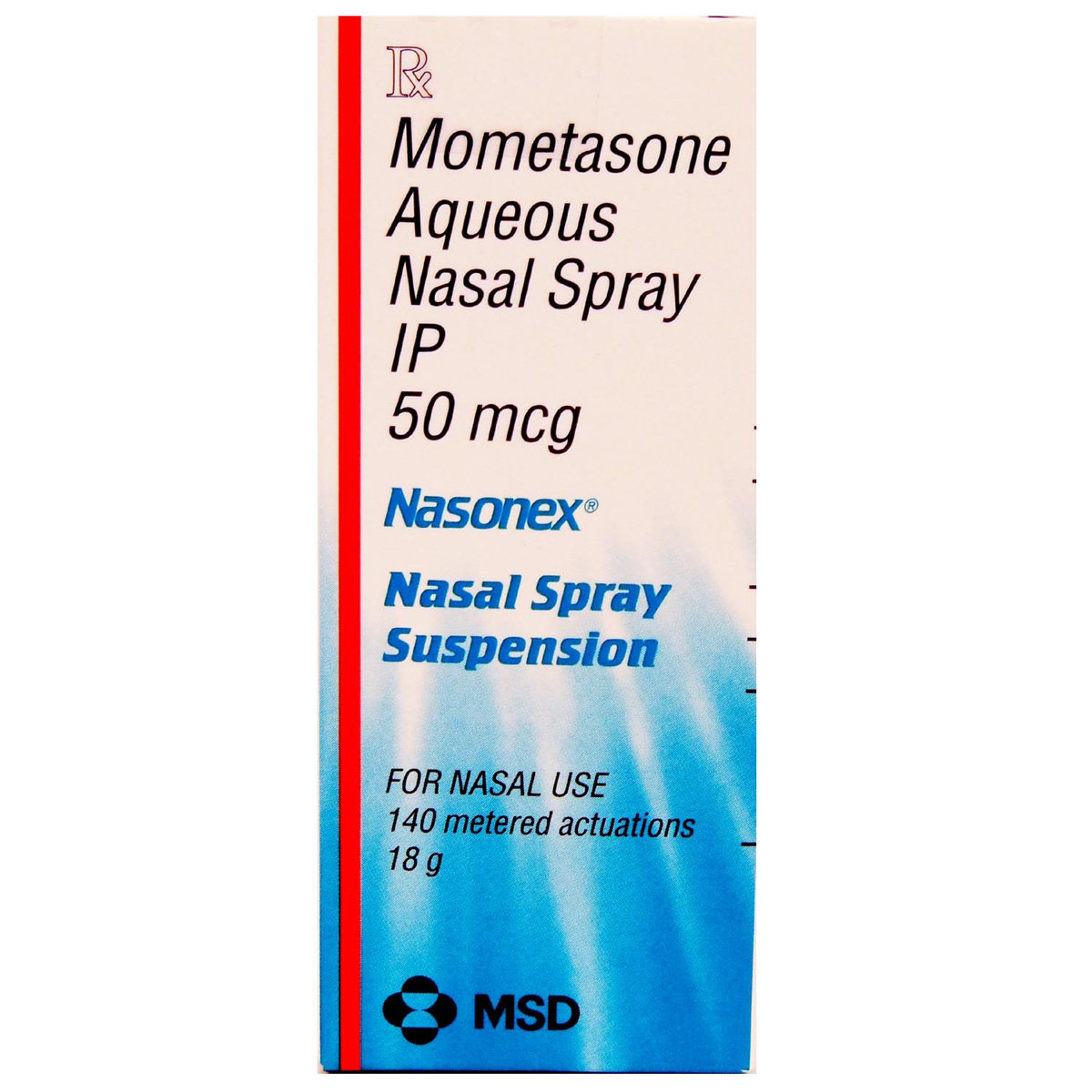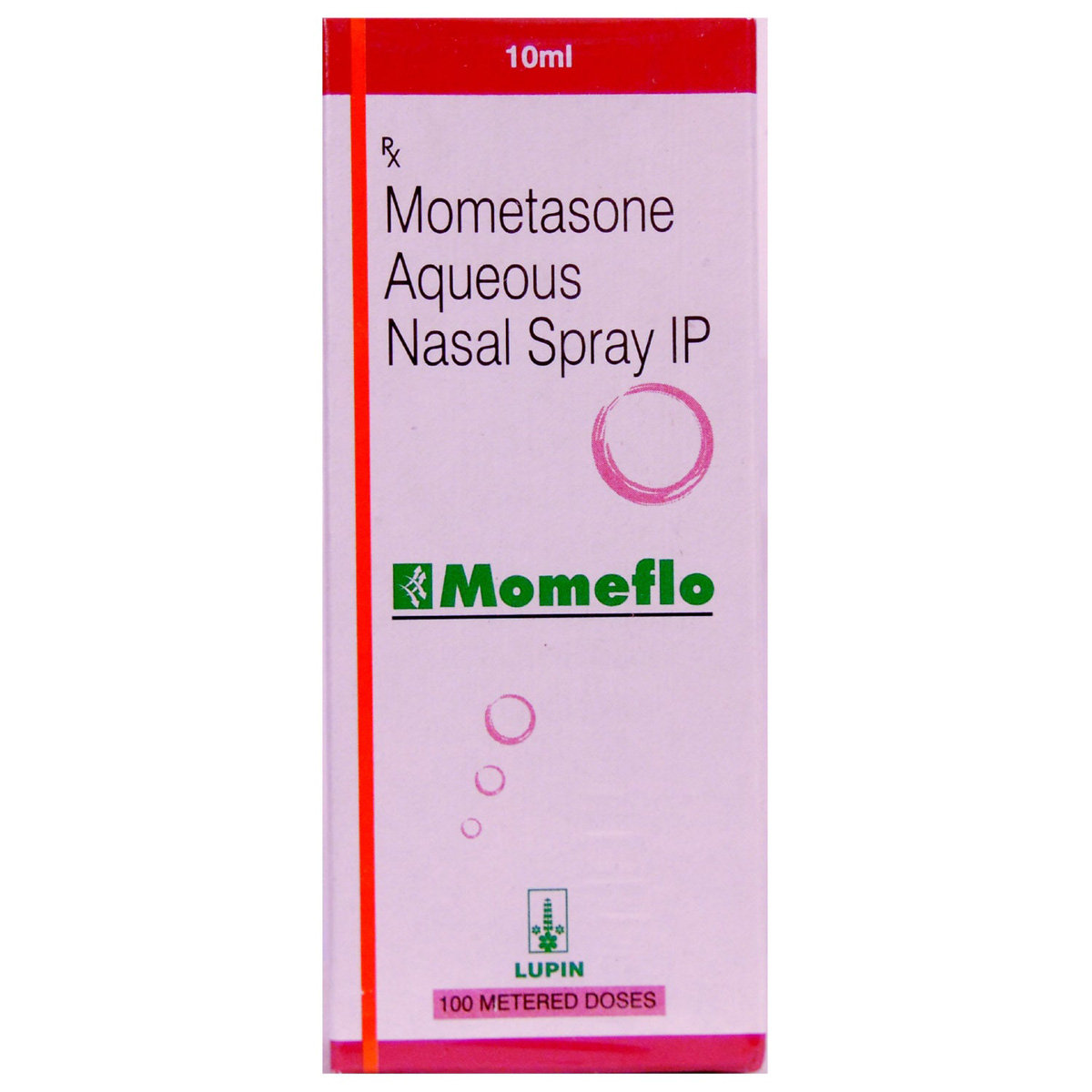Respizen Nasal Spray 10 gm
MRP ₹399
(Inclusive of all Taxes)
₹59.9 Cashback (15%)
Provide Delivery Location
Online payment accepted
 Prescription drug
Prescription drugWhats That
Composition :
Manufacturer/Marketer :
Consume Type :
Expires on or after :
Return Policy :
About Respizen Nasal Spray
Respizen Nasal Spray belongs to a class of drugs called corticosteroids used to treat seasonal and perennial allergic rhinitis symptoms. Also, Respizen Nasal Spray is used to treat nasal polyps (painless, noncancerous growths on the lining of the nose or sinuses) in adults aged 18 years and above. Seasonal allergic rhinitis, commonly called hay fever, mostly occurs in the summer, spring or early fall. Perennial allergic rhinitis affects you throughout the year and can be triggered by mould, cockroach or dust mite droppings, pet dander and saliva.
Respizen Nasal Spray contains Mometasone that gets absorbed into the cells of the nasal lining and works by inhibiting these cells from releasing chemicals that trigger inflammatory and allergic reactions. Thereby, it helps to relieve sneezing, runny or blocked nose and sinus discomfort.
Use Respizen Nasal Spray as prescribed. You are advised to use Respizen Nasal Spray for as long as your doctor has recommended it based on your medical condition. Sometimes Respizen Nasal Spray may cause common side effects such as headache, nose bleeds, sore throat or nose, sneezing, or ulcers in the nose. Most of these side effects of Respizen Nasal Spray do not require medical attention and gradually resolve over time. However, if the side effects persist or worsen, please consult your doctor.
Please tell your doctor if you are allergic to Mometasone or other medicines. If you are pregnant or breastfeeding, it is advised to inform your doctor before using Respizen Nasal Spray. Respizen Nasal Spray is recommended for children aged three years and above to treat seasonal and perennial allergic rhinitis and is used to treat nasal polyps in children aged 18 years and above.
Uses of Respizen Nasal Spray
Directions for Use
Key Benefits
Respizen Nasal Spray contains Mometasone, a steroid used to treat seasonal and perennial allergic rhinitis symptoms. It gets absorbed into the cells of the nasal lining and works by inhibiting these cells from releasing chemicals that trigger inflammatory and allergic reactions. Thus, it helps to relieve symptoms such as sneezing, runny or blocked nose and sinus discomfort. Also, it is used to prevent nasal polyps (painless, noncancerous growths on the lining of the nose or sinuses) in adults aged 18 years and above.
Storage
Drug Warnings
Please tell your doctor if you are allergic to Mometasone or other medicines. If you are pregnant or breastfeeding, it is advised to inform your doctor before using Respizen Nasal Spray. Respizen Nasal Spray is recommended for children aged three years and above to treat seasonal and perennial allergic rhinitis and is used to treat nasal polyps in children aged 18 years and above. Avoid using Respizen Nasal Spray if you have recently had surgery on the nose or have a nose injury.
Drug-Drug Interactions
Drug-Drug Interactions
Login/Sign Up
Co-administration of Respizen Nasal Spray 10 gm with Mifepristone may make Respizen Nasal Spray 10 gm less effective as a therapy.
How to manage the interaction:
Taking Respizen Nasal Spray 10 gm with Mifepristone is generally avoided as it can result in an interaction, it can be taken only when a doctor has advised it. Do not stop using any medications without talking to a doctor.
Drug-Food Interactions
Drug-Food Interactions
Login/Sign Up
Diet & Lifestyle Advise
- It is advised to avoid contact with known allergens (allergy-causing agents) such as pollen, dust, etc. Certain food items are known to cause allergies to you.
- Maintain personal hygiene and keep your surroundings clean.
- Staying hydrated is vital for those with a cough or cold. Drink liquids at room temperature to get relief from a runny nose, cough, and sneezing.
- The immune system is affected by stress and raises the risk of being sick. Do meditation, deep breathing, regular exercise, and try progressive muscle relaxation techniques to relieve stress.
Side Effects of Respizen Nasal Spray
- Headache
- Nose bleeds
- Sore throat or nose
- Sneezing
- Ulcers in the nose
Habit Forming
Therapeutic Class
All Substitutes & Brand Comparisons
RX
Out of StockIsomet-M Nasal Spray
Incus Pharmaceuticals Pvt Ltd
₹220
(₹1.98/ 1MDI)
94% CHEAPERRX
Out of StockMegaspray Spray
Alembic Pharmaceuticals Ltd
₹163.91
(₹14.75/ 1ml)
58% CHEAPERRX
Nazomac M Nasal Spray 12 ml
Macleods Pharmaceuticals Ltd
₹321.5
(₹24.12/ 1ml)
32% CHEAPER
Author Details
We provide you with authentic, trustworthy and relevant information
Drug-Diseases Interactions
Drug-Diseases Interactions
Login/Sign Up
FAQs
Drug-Drug Interactions Checker List
- COBICISTAT
- RITONAVIR
Disease/Condition Glossary
Allergic rhinitis: It occurs when you breathe in an allergen which triggers an allergic reaction. It can be seasonal or perennial.
Seasonal allergic rhinitis: It is commonly called hay fever and mostly occurs in the summer, spring or early fall. It is usually triggered by fungus spores in the air or pollen from specific plants such as trees, flowers, weeds, or grasses.
Perennial allergic rhinitis: It affects you throughout the year and can be triggered by mould, cockroach or dust mite droppings, pet dander and saliva.

Have a query?
Alcohol
Safe if prescribed
Interaction of Respizen Nasal Spray with alcohol is unknown. If you have any concerns regarding this, please consult a doctor.
Pregnancy
Consult your doctor
Limited data is available on the effect of Respizen Nasal Spray in pregnancy. Hence, if you are pregnant or planning pregnancy, inform your doctor before using Respizen Nasal Spray. Your doctor may prescribe this medicine if the benefits outweigh the risks.
Breast Feeding
Consult your doctor
Limited data is available on the effect of Respizen Nasal Spray on breastfeeding. Hence, if you are a nursing mother, inform your doctor before using Respizen Nasal Spray. Your doctor may prescribe this medicine if the benefits outweigh the risk.
Driving
Safe if prescribed
Respizen Nasal Spray may cause side effects that can affect your concentration; hence, avoid driving or operating machines until you are alert.
Liver
Consult your doctor
If you have any concerns regarding using Respizen Nasal Spray in patients with liver problems, please consult a doctor.
Kidney
Consult your doctor
If you have any concerns regarding using Respizen Nasal Spray in patients with kidney problems, please consult a doctor.
Children
Safe if prescribed
Respizen Nasal Spray is recommended for children aged three years and above to treat seasonal and perennial allergic rhinitis and is used to treat nasal polyps in children aged 18 years and above.

